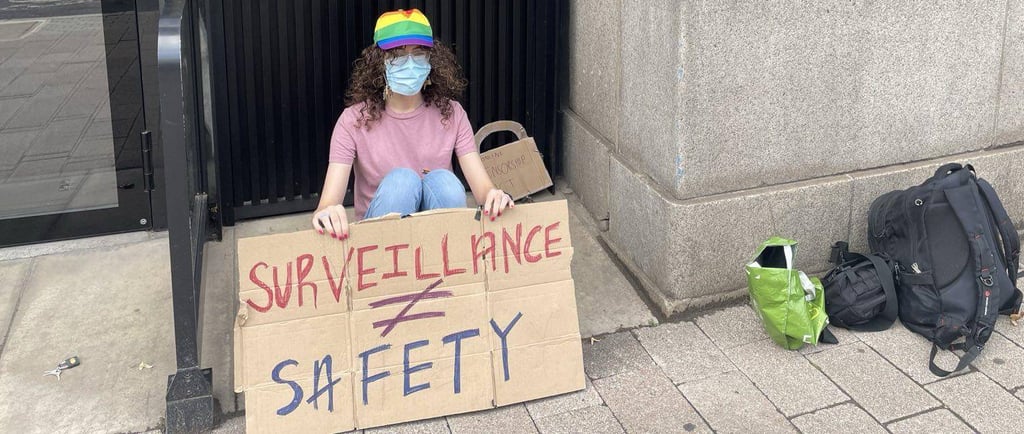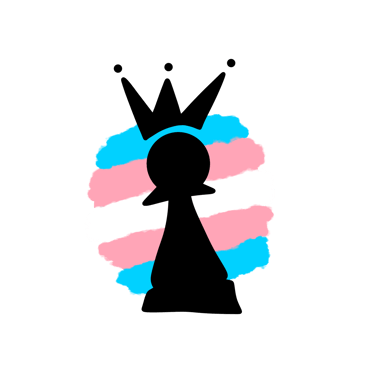Young trans activists refuse to be silenced by the Online Safety Act
We will not allow our safe spaces and education about us to be restricted under the guise of protecting us.
9/3/20251 min read


LONDON, 3rd September 2025 – Two activists from Trans Kids Deserve Better staged a sit-in outside the London headquarters of Ofcom to highlight the dangers present within the Online Safety Act (OSA). Activists wore padlocks on their masks and left a large cardboard padlock (alongside other smaller padlocks) outside their door to symbolize the censorship and restriction imposed on LGBTQ+ communities and trans voices online in the wake of the act coming into force.
During the action, a speech was made by 10Queen, who said: “The aim was to safeguard children from things on the internet that could harm them. But that's not happening. […] People are losing access to websites, communities, that the government deems unacceptable. And you know how popular it is to deem trans people, or mental health support, LGBT+ content in general, 'harmful to children'. […] They won't look like eyes when they see your crime. They won't look like chains when they block your world. The padlocks we wear today are not visible online. But neither is trans content, if you're under 18 or don't want to give up your privacy to 'confirm' your age.”
The other activist, Spider, had this to say: “Time and time again the government use the protection of children as an excuse to pass acts which push us closer to a fascist society. We need to not only open ours eyes to this censorship but actively fight against it. This won’t save children. This will endanger vulnerable ones.”
During the action, it was stressed that the Act is not just detrimental for trans kids across the UK, but it adversely affects everyone, which can be seen in the ongoing attempts to censor English Wikipedia, with the Wikimedia Foundation (the operators of Wikipedia) losing a court challenge to the regulations under the OSA. The act has also been criticised by groups such as the Electronic Frontier Foundation, a San Francisco based international digital rights group who termed the Act as a “Massive threat to online privacy, security, and speech”.
